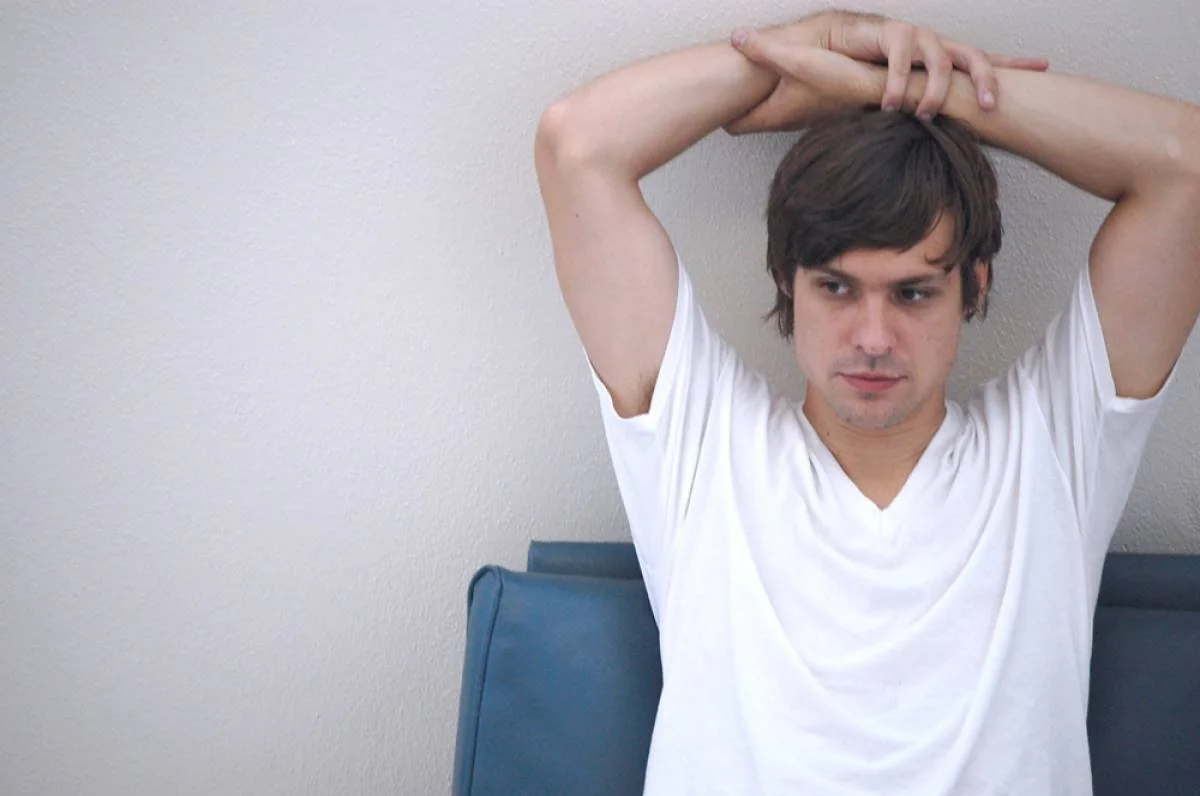(Note: I gather John Maus has been hoovered into the ongoing Progressive pogrom. The attacks—see Jezebel, Vice, Pitchfork, whomever—are vicious, baby-brained, deadly boring. So I’m posting this. It uses about 10 percent of a long, weird, delightful and confounding interview/conversation that I’m still pondering 13 years later, in a different world where the so-called Resistance is the Establishment, albeit too fuckin’ dumb and too intoxicated on punishment to notice. I have as much use for these idiots as I did the Moral Majority back in the ‘80s and ‘90s. Let ‘em burn, eat themselves whole, garrison themselves inside a besieged cult of false consciousness and terrible art.)
Think of a radio tuned halfway between Animotion’s “Obsession” and a station playing nothing but poorly recorded Joy Division bootlegs: that’s what John Maus sounds like. Or consider him the dark inverse of his old collaborator Ariel Pink. The Haunted Graffiti main man exalts the retro sounds in his musical vocabulary, but Maus mangles the shit out of them. “Heaven is Real” innocently opens his 2007 album, Love is Real, with canned drumbeats and ’80s synths. Seconds later, super-reverbed vocals suggest a descent into psychosis, setting a terrifying mood that lasts for the rest of the album. His homemade video for the stately, unsettling “Tenebrae”—featuring crucifixion and resurrection scenes lifted from Franco Zeffirelli’s Jesus of Nazareth—prompted this comment on YouTube: “i want john maus to shit into my mouth to this while i suck bloodfarts out of jesus ass hole.”
“Yeah,” Maus tells the Straight from Austin, Minnesota, “I wish I cold make sense of that, but it’s just incomprehensible to me.” Okay, that’s an extreme example, but who is the typical John Maus listener? “Somebody told me once that they don’t like any music at all,” he says, “but they like what I’m doing, and to me that would be the exemplary compliment. There’s a sense in which I want to render everything that was celebrated in pop music pointless. Just show it up for the nonsense that it looks like to me. Whether or not I do that, I don’t know. But I’m trying to do something like it. These people seem to appreciate that.”
Though you probably wouldn’t guess from his crazed live performances in front of his laptop—he’s more than just unselfconscious; he seems totally possessed—Maus recently spent a year teaching in the political-science department at the University of Hawaii. There’s a conceptual rigour behind his work that might be lost inside the sheer freakiness of it, this out-there tendency spilling over into his off-stage persona. (For example, he takes his interviewer on a somewhat baffling, if entertaining, journey into deep theory when pressed on the actual meaning of what he does. Asked why he uses such conspicuously retro sounds, Maus—whose academic background is in philosophy—winds up discussing “the ineffability” of The Karate Kid.) “Perhaps it is just a nostalgic looking back,” he says, “but as a grownup I go, ‘No, it’s not that, there’s something happening in the entirety of it that is worth investigating right now.’ I see it there. You can’t really transpose into language. It’s just kind of a wager or a hunch that something precious is there and I wanna try to go for it, wrest it, push it further, you know? It’s driven me, goddamn, to the limits trying to do this, and I’m only approximating it with these vulgar cultural references.”
His sincerity aside, the risk for Maus—whose visit to Vancouver on New Year’s Eve should provide a late entry for the year’s most memorable spectacle—is that he might be viewed as a high-concept BS artist. He’s okay with that. “If that’s how they come to it, then that’s what they’ll get,” he reasons. “But I think relative to what could be available, that would be an impoverished way of experiencing it.”
Georgia Straight, December 2010
